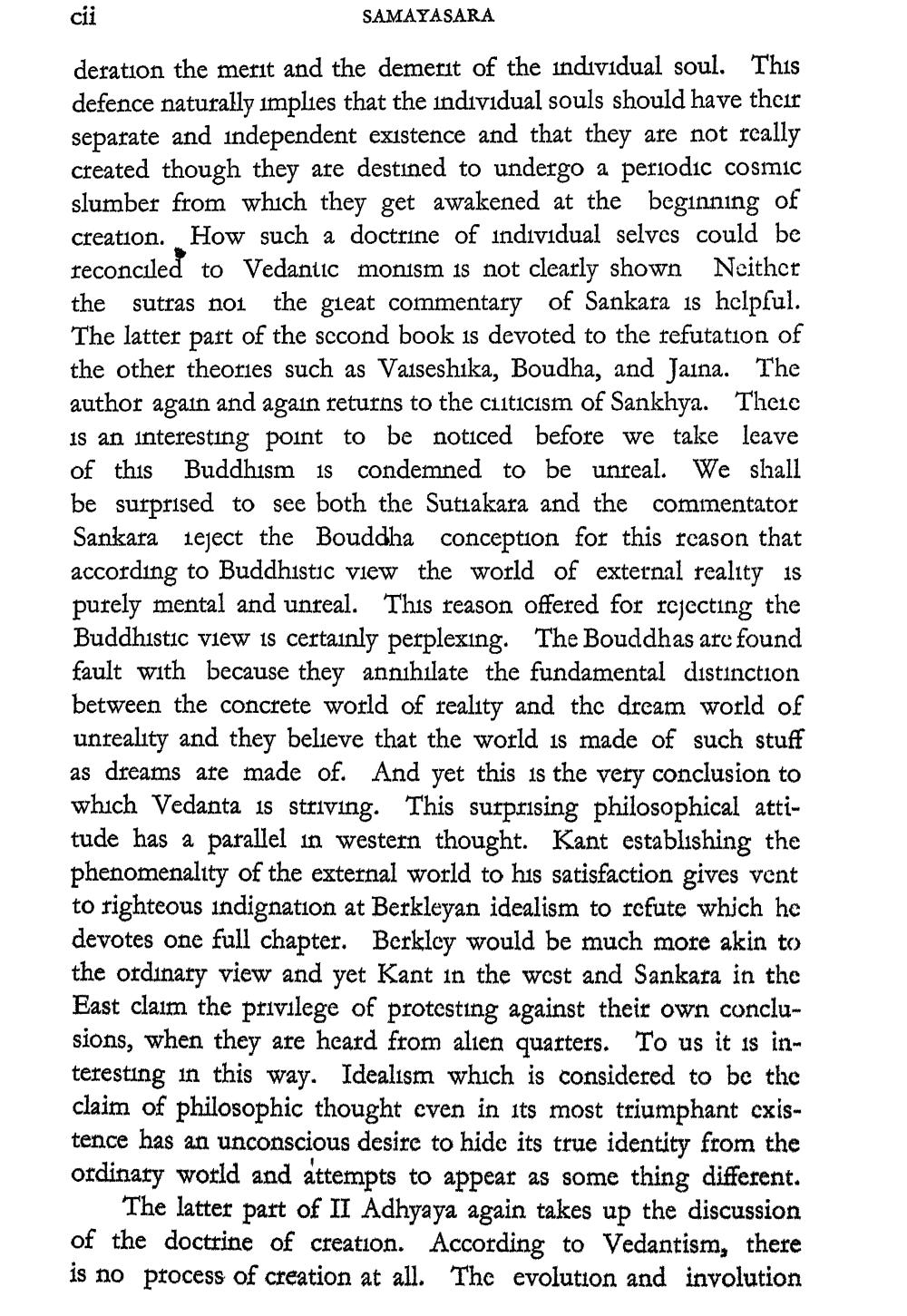________________
cii
SAMAYASARA
deration the merit and the demerit of the individual soul. This defence naturally implies that the individual souls should have their separate and independent existence and that they are not really created though they are destined to undergo a periodic cosmic slumber from which they get awakened at the beginning of creation. How such a doctrine of individual selves could be reconciled to Vedantic monism is not clearly shown Neither the sutras not the gieat commentary of Sankara is helpful. The latter part of the sccond book is devoted to the refutation of the other theories such as Vaiseshika, Boudha, and Jaina. The author again and again returns to the ciiticism of Sankhya. There is an interesting point to be noticed before we take leave of this Buddhism is condemned to be unreal. We shall be surprised to see both the Sutiakara and the commentator Sankara teject the Bouddha conception for this reason that according to Buddhistic view the world of external reality is purely mental and unreal. This reason offered for rejecting the Buddhistic view is certainly perplexing. The Bouddhas are found fault with because they annihilate the fundamental distinction between the concrete world of reality and the dream world of unreality and they believe that the world is made of such stuff as dreams are made of. And yet this is the very conclusion to which Vedanta is striving. This surprising philosophical attitude has a parallel in western thought. Kant establishing the phenomenality of the external world to his satisfaction gives vent to righteous indignation at Berkleyan idealism to refute which he devotes one full chapter. Berklcy would be much more akin to the ordinary view and yet Kant in the west and Sankara in the East claim the privilege of protesting against their own conclusions, when they are heard from alien quarters. To us it is interesting in this way. Idealism which is considered to be the claim of philosophic thought even in its most triumphant cxistence has an unconscious desire to hide its true identity from the ordinary world and attempts to appear as some thing different.
The latter part of II Adhyaya again takes up the discussion of the doctrine of creation. According to Vedantism, there is no process of creation at all. The evolution and involution




